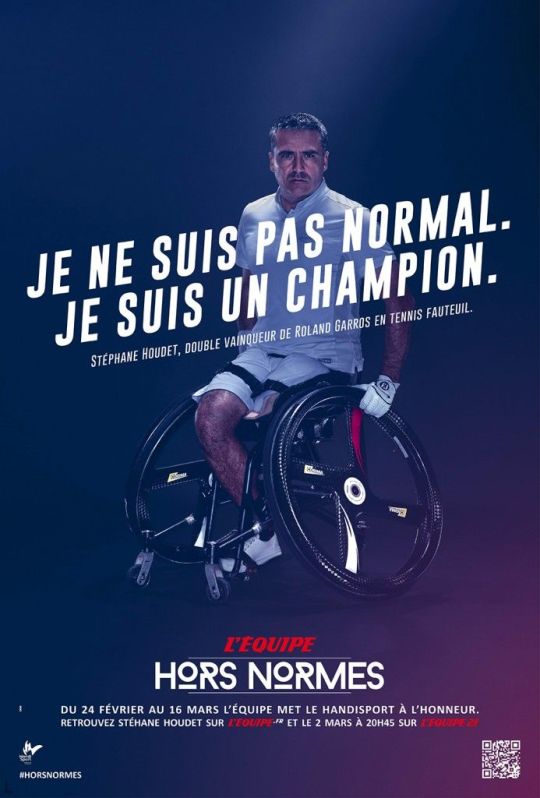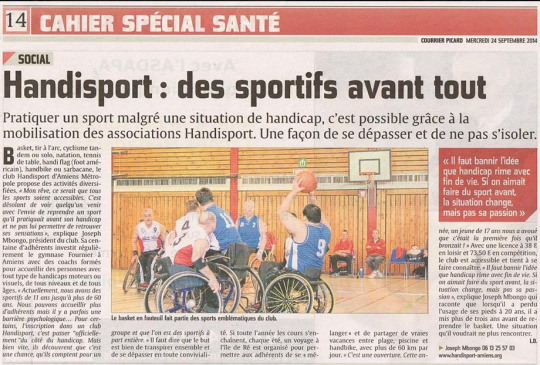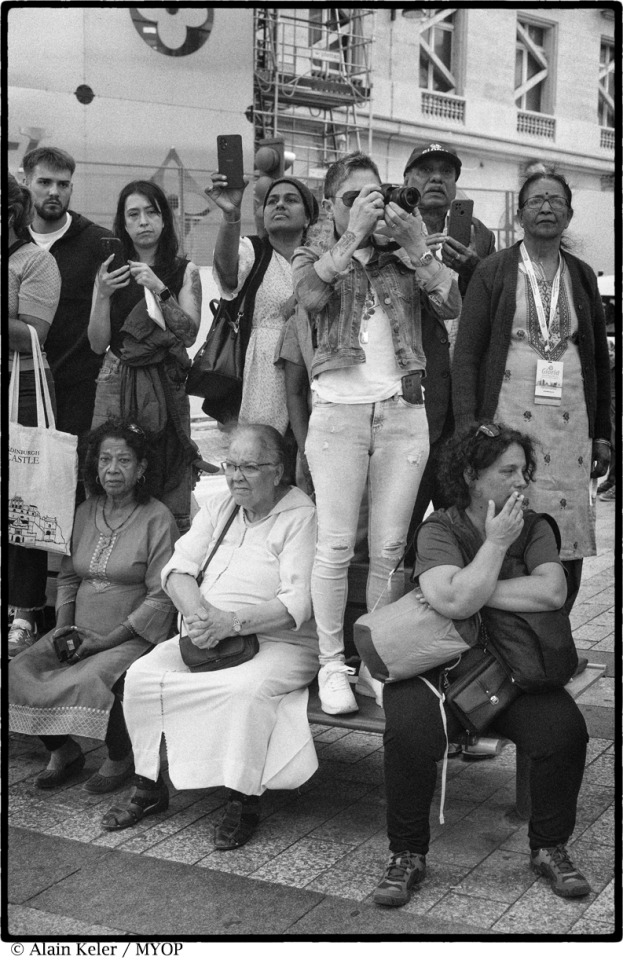#baron de coubertin
Explore tagged Tumblr posts
Text
Why isn't Ben Willabond out there singing about the history of the Olympics dressed as Baron de Coubertin.
3 notes
·
View notes
Text




1 note
·
View note
Text


By Nicolás de Cárdenas
26 July 2024
The motto of the modern Olympic Games, “Faster, Higher, Stronger,” was coined by French Dominican friar Louis Henri Didon (17 March 1840 – 13 March 1900), who became friends with the founder of the modern Olympic Games, Baron Pierre de Coubertin (1 January 1863 – 2 September 1937), five years before the 1896 Athens Games.
Baron Pierre de Coubertin is known as the Father of the Modern Olympic Games.
The motto, originally formulated in Latin as “Citius, Altius, Fortius," was used before the modern Olympic movement at St. Albert the Great School in Paris, where the Dominican friar was the principal.
Born on 17 March 1840, Didon entered the Rondeau Minor Seminary in Grenoble, France, beginning at the age of 9.
During his youth, he stood out for his ability as an athlete.
After visiting the Carthusian monastery in Grenoble, he decided to follow a religious vocation and took the habit of the Order of Preachers (Dominicans) at the age of 16.
Six years later, after a period of formation in Rome, he was ordained a priest at age 22.
Military chaplain, prisoner, and refugee
Didon soon gained fame as a preacher.
During the brief Franco-Prussian War, which broke out in July 1870, he was a military chaplain and for a time was held as a prisoner.
When he fell ill, he ended up as a refugee in Geneva, Switzerland.
From there, he was sent to Marseille, where he resumed his sometimes controversial preaching activity, which led to his being sent to Corsica in 1880.
A decade later, he was appointed principal of St. Albert the Great School in Paris where he established sports as part of the school’s educational program and promoted sports competition.
This decision was the result of the belief in the value of sports and the contact he had with Pierre de Coubertin since 1891.
In the first race they organized, the Dominican decided to embroider on the school flag the famous motto, which would become an Olympic motto during the first Olympic Congress held in Paris in 1894.
Two years later, Athens hosted the first Olympic Games, which have since been held every four years.
It was interrupted only three times due to World Wars I and II (1916, 1940 and 1944) and postponed from 2020 to 2021 due to the COVID-19 pandemic.
—
This story was first published by ACI Prensa, CNA’s Spanish-language news partner. It has been translated and adapted by CNA.
#Louis Henri Didon#Baron Pierre de Coubertin#Olympic Games#Olympics#Olympic Congress 1894#International Olympic Committee#olympics history#Modern Olympic Games#Olympic motto
2 notes
·
View notes
Text
kitten, daddy will be real with you, she did not choose to go to law school so she would have to study SPORTS. like, sorry to the ppl who spent their life on this, but lex sportiva makes me wanna die
#.text#i wish i could kill myself in front of the baron de coubertin so i could change the trajectory of his life forever
11 notes
·
View notes
Text
Winning Strategies For Games Of Chance
Winning strategies for games of chance #Poohsticks
In an Olympic year it might be churlish to gainsay the founder of the modern games, Baron Pierre de Coubertin, whose mantra was that “the most important thing in the Olympic Games is not winning but taking part; the essential thing in life is not conquering but fighting well”. That is all very well, but for some psychologists and game theorists rock, paper, scissors (RPS) offered the opportunity…

View On WordPress
#AA Milne#Baron Pierre de Coubertin#Dr Rhys Morgan#Neil Farber#Physics and Society#Poohsticks#Posingford Bridge#Psychology Today#Rock paper scissors#VisitEngland
0 notes
Text
Step into sporting history with a stay at the home of the founder of the modern Olympics, now on Airbnb
With almost a year until Paris 2024, the childhood home of Baron Pierre de Coubertin has been transformed to take guests on a journey through time. For one night only guests will get the opportunity to immerse themselves in Olympic history in Château de Mirville, an iconic stop on the Olympic torch relay in 2024. Built in the 16th century, Château de Mirville is where the young Coubertin…

View On WordPress
0 notes
Text
youtube
For those who didn’t read up on their Greek history, the Olympics are very much political. It was created to create peace between the competing cities and it was against the rules to be allowed to be in the games while being at war with another city and since baron Pierre de Coubertin (He was French, if you didn’t know. Ironic, I know) based the modern Olympics on the ancient ones then he probably had the same rules added too, only in this case it was changed to nations instead of cities.
What I’m trying to say is this: You don’t get to change the rules that have existed for over two thousand years just because you want to please the Zionists or the pro-war billionaires that keep funding the Zionists!
#palestine#free palestine#gaza#free gaza#israel#israel is a terrorist state#i stand with palestine#gaza genocide#paris olympics#olympics 2024#olympics#france#ancient greece#antizionism#boycott israel#israel is committing genocide#israel is evil#stop israel#freepalestine#free plaestine#free west bank#palestine will be free#Youtube
53 notes
·
View notes
Text
Weird Olympic Moments Tournament
To celebrate (?) the Paris 2024 Olympic Games starting in a few weeks, I thought I'd run another Olympic-themed poll tournament. This time, we're diving into history and getting to know some of the stranger, lesser-known stories of the Games.
Polls will run for a week, and the tournament should last until around early September if I'm doing my math right. The first polls will begin Monday, July 15th.
At the end, we'll award a gold, silver, and bronze to the top three.
After many hours on Wikipedia and the IOC website, here's the list of moments I came up with:
Horse vaulting
Pigeon racing
Sarajevo venues damaged in war
Mayor of Montreal says "The Olympics can no more lose money than a man can have a baby," then proceeds to host one of the most financially disastrous Games in history
George Eyser wins six medals after being run over by a train
Solo synchronized swimming
Crowd gets pooped on by 25,000 pigeons
Flame is taken to top of Mount Everest
Margaret Abbot dies without knowing she made history as the first US woman to win gold
Brazilian team has to sell coffee to afford the trip to Los Angeles
A teenager's "dumb idea" becomes Olympic tradition (athletes marching together in closing ceremony)
St. Louis experiments with "purposeful dehydration", denies water to marathon runners
Kanakuri Shizō takes 54 years to finish his race
Mt. Vesuvius moves the Olympics to London
They stop doing the Olympic salute for some reason
IOC President compares a terrorist attack to a vote to ban a racist country
The Olympics goes 88 years without letting women run marathons
Olympic flame transmitted via satellite
Northern Rhodesia declares independence during Olympics, changes name to Zambia
Vancouver 2010 cauldron malfunction
Montreal 1976 stadium is finally paid off in 2006
The curse of the Beijing 2008 mascots
Everest climbers get gold medals
Sochi snowflake malfunction
They hold the Olympics in 1906, then later say it doesn't count
Colorado kicks the Olympics out
Flame hidden from view after anti-gay law
Summer Olympics held during Winter
Haiti and Liechtenstein discover they had the same flag
Riot at the 1924 rugby match
McDonald's gives out more Big Macs than they expected
Chamonix 1924 retroactively named the Winter Olympics
Doves burned during cauldron lighting
Torchbearer takes olympic flame down a ski jump
Medals made of e-waste
Shooter aims for wrong target, loses gold
Olympic torch passed on International Space Station
Alien addresses crowd
Figure skating debuts at Summer Olympics
Olympics held on two different continents
Rio organizers lose key to stadium gate
Baron de Coubertin wins a gold medal under false identity
1960 winter games held in city named for an ethnic slur
Obstacle Swimming
North Korea considered to co-host 1988
Housing complex for American soldiers during the occupation of Japan becomes the Olympic village
Torch design changed mid-relay
Cauldron lit by flaming arrow
Last three seconds of basketball final replayed three times until results changed
St. Louis threatens to hold their own Olympics if they don't get named host city
Fatso the Fat-Arsed Wombat
Balloon racing
Delirious man carried over finish line by coaches, wins marathon
Summer Olympics held in November and December
Olympics postponed for COVID
Blue screen of death appears during opening ceremony
Marathon runner attacked by priest
Guy kicks referee in the face and (maybe) ends up on a stamp
Jet pack flies over stadium
Centennial games not awarded to a very confident Athens
LA 84 gets in trouble for commercializing the torch relay
Olympic flame relit with cigarette lighter
Rower stops for ducks
Nazi propaganda becomes Olympic tradition (torch relay)
Did I miss a great weird moment? Send it to me in an ask and I might do a round 2 or something!
I chose the moments based on my own personal bias (lol)
Heads up that there is one that involves the death of animals, but I will tag any polls with that #tw animal death
Please don't hesitate to let me know if you need anything else tagged, and how to tag it!
Also, a disclaimer that I'm tired and scatterbrained and I work full time, so if this gets a little disorganized I apologize. Shouldn't be too bad though.
Let the games begin, and whatnot
@tournament-announcer :)
37 notes
·
View notes
Text
Cose Olimpiche
Premessa: vorrei togliere dalle gigantesche spalle di Charles Pierre de Frédy, barone di Coubertin la frase che sostiene "l'importante non è vincere, è partecipare": in realtà a pronunciare questa frase fu il vescovo anglicano Ethelbert Talbot, della diocesi di Bethlehem, Central Pennsylvania, durante una cerimonia di saluto ai partecipanti ai Giochi di Londra 1908, il 24 giugno, nella cattedrale di Saint Paul. Lui si limitò a citarla il giorno dopo, chiarendone la fonte, in un banchetto. Il motto olimpico, voluto da De Coubertin ma ideato da un altro religioso, Henri Didon è un altro, dal significato del tutto opposto: «Citius, altius, fortius», «Più veloce, più alto, più forte».
Multidisciplinarietà Rosa: le 40 medaglie vengono da 20 discipline diverse, delle 12 d'oro 7 sono state vinte da atlete, 2 da coppie miste (la prima assoluta della storia olimpica nella prova dello Skeet Misto). I grandiosi velisti Caterina Banti e Ruggero Tita sono gli unici della nostra spedizione ad aver confermato l'oro di Tokyo.
Legni: Sono 25 i quarti posti nelle competizioni olimpiche dell’Italia. Dietro di noi la Francia con 19, gli Stati Uniti con 18 e la Gran Bretagna con 17. A cui vanno aggiunti altri 26 tra quinti e sesti posti. Un segnale prezioso, che dimostra una generale competitività del movimento sportivo, ma che lascia l’amaro in bocca, soprattutto per alcuni episodi.
Rivolte Eleganti: la protesta del Settebello, la Nazionale Maschile di Pallanuoto, rimarrà nella storia Olimpica. Alla presentazione degli inni prima della Semifinale per i posti dal 5° all'8° contro la Spagna, la squadra si è presentata di spalle alla giuria arbitrale

Poi per i primi 4 minuti della partita con la Spagna ha tenuto un giocatore sempre nel proprio angolo di metà campo, a simboleggiare una espulsione. Questo perché nella partita dei Quarti contro l'Ungheria, una decisione inspiegabile del primo arbitro ha punito per fallo violento per 4 minuti un giocatore, Francesco Condemi: è stato giudicato infatti violento un contatto naturale di Condemi, che si preparava a nuotare in attacco, con un ungherese. La decisione ha annullato il 3-3 italiano scaturito in quella azione, dato un rigore all'Ungheria, trasformato (punteggio quindi 2-4) e costretto l'Italia a giocate 4 minuti, metà di uno dei 4 tempi della partita, con un uomo in meno. La partita finirà 9-9, perderemo ai rigori.
Leggende: L'unico atleta delle Olimpiadi moderne ad aver vinto per 5 edizioni consecutive l'oro, nella Lotta Greco Romana categoria Super Massimi, battendo il record detenuto da 4 leggende sportive americane: Al Oerter, Carl Lewis e Michael Phelps. Mijaín López, lottatore cubano, appena terminato il suo incontro si è tolto le scarpe, annunciando il suo ritiro, dopo una carriera inimitabile (tra l'altro, 5 volte campione del Mondo, 5 ori ai Panamericani)

Insegnamenti: Kimia Yousofi, velocista afghana, ha corso la sua batteria dei cento metri in 13"42, tempo nemmeno modesto, ma alla fine della sua prova, girando il suo numero di partenza ha mostrato queste parole:

Educazione, Sport (scritto in verde, che si legge a malapena) e I nostri diritti. I 6 atleti afghani presenti a Parigi, 3 donne e 3 uomini, sono stati selezionati non dal governo afghano dei taliban ma da un Comitato olimpico afghano in esilio. Tanto che “Soltanto tre atleti maschili rappresentano l'Afghanistan” ha dichiarato qualche settimana fa un portavoce dei taliban. Perchè tra le molte cose vietate alle donne, anche lo sport non può essere praticato.
Onlyfans: l'asticella colpita dalla "generosità" del saltatore Anthony Ammirati che lo ha estromesso dalla Finale del Salto con l'Asta (per una di quelle serie di coincidenze linguistiche da capogiro) non ha affatto scatenato le polemiche sulla ipersessualizzazione di un atleta. Cosa che, per certi versi in maniera molto coerente, ha spinto le giocatrici di Beach Volley Brasiliane (oro alla fine del Torneo) a giocare così:

in pantaloncino, mentre le loro avversarie canadesi in finale si sono presentate così:

Argentini: prima delle Olimpiadi, Julio Velasco ha perso il fratello maggiore, Raul, più anziano di lui di sei anni (72 Julio, 78 Raul). Ne ha anche un altro, Luis, che giovanissimo fu arrestato durante la Dittatura di Vileda, e per cinque mesi irrintracciabile. La famiglia, sconvolta, pensò ad un ennesimo caso di desaparecido. Invece dopo 5 mesi, dopo che subì torture indicibili e numerose simulazioni di fucilazioni, Luis fu riconsegnato alla famiglia. E la prima cosa che raccontò ai fratelli fu questa: "Quando mi stavano torturando, c'era un prete nella stanza. Distrutto dal dolore, a mezza voce gli dico <<Padre ma lei è contento di far parte di tutto questo?>>. Il prete restò in silenzio ed uscì dalla sala". Questo per dire di che pasta sono fatti i Velasco. Le cui prime parole dopo un'impresa stratosferica (5 partite vinte su 5, 15 set vinti, solo 1 perso, record assoluto in una Olimpiade, prima squadra Europea campione Olimpica nella pallavolo femminile dal 1988) sono state rivolte: alle ragazze che hanno giocato, a quelle che non c'erano per infortunio, al movimento della pallavolo femminile che "sta alle ragazze come il calcio ai ragazzi". Nessuna sfida personale, nessun cerchio che si chiude. Un grande uomo di sport, Julio Velasco.

23 notes
·
View notes
Text
At the ancient Olympics in Greece, athletes weren’t the only stars of the show. The spectacle also attracted poets, who recited their works for eager audiences. Competitors commissioned bigger names to write odes of their victories, which choruses performed at elaborate celebrations. Physical strength and literary prowess were inextricably linked.
Thousands of years later, this image appealed to Pierre de Coubertin, a French baron best known as the founder of the modern Olympics in 1896. But today’s Games bear little resemblance to Coubertin’s grand vision: He pictured a competition that would “reunite in the bonds of legitimate wedlock a long-divorced couple—muscle and mind.”
The baron believed that humanity had “lost all sense of eurythmy,” a word he used to describe the harmony of arts and athletics. The idea can be traced back to sources such as Plato’s Republic, in which Socrates extolls the virtues of education that combines “gymnastic for the body and music for the soul.” Poets should become athletes, and athletes should try their hand at verse.
That philosophy was a driving force at the 1912 Stockholm Games, where organizers introduced five arts competitions as official Olympic events. Modern history’s first written work to win an Olympic gold medal was “Ode to Sport,” a prose poem by Georges Hohrod and M. Eschbach. It begins:
O Sport, delight of the Gods, distillation of life! In the grey dingle of modern existence, restless with barren toil, you suddenly appeared like the shining messenger of vanished ages, those ages when humanity could smile.
Over the following eight verses, the poets sing Sport’s praises. “O Sport, you are Honor! The titles you bestow are worthless save if won in absolute fairness. … O Sport, you are Joy! At your call the flesh makes holiday and the eyes smile. … O Sport, you are Fecundity! … O Sport, you are Progress!” And so on.
Today’s readers are often underwhelmed by the first poem to win gold, describing it as “florid,” “saccharine” or “overblown.” But as far as the 1912 jury was concerned, Hohrod and Eschbach knocked it out of the park.
“The great merit of the ‘Ode to Sport,’ which, in our view, was far and away the winner in the literature competition, was that it is the very model of what the competitions [were] looking for in terms of inspiration,” wrote the jurors in their report.
It’s perhaps unsurprising that Hohrod and Eschbach understood the spirit of the competition, the fabled marriage of muscle and mind, so acutely. That’s because they were pseudonyms for the man who had conceived the whole idea: The author of “Ode to Sport” was none other than Coubertin himself.
The first major excavations at Olympia, the Greek sanctuary that hosted the ancient Games, began in the 1870s. While previous digs had revealed ruins around the Temple of Zeus, the large-scale efforts that followed uncovered sprawling structures and thousands of artifacts.
At the time, Coubertin was a teenager living in France. He had already seen the ruins of ancient Rome on family trips as a young boy, and now he was hearing all about the excavations at Olympia. He had recently started attending a Jesuit school, which provided him with a classical education and strengthened his burgeoning interest in ancient Greece.
“[Coubertin] was raised and educated classically, and he was particularly impressed with the idea of what it meant to be a true Olympian—someone who was not only athletic, but skilled in music and literature,” Richard Stanton, author of The Forgotten Olympic Art Competitions, told Smithsonian magazine in 2012. “He felt that in order to recreate the events in modern times, it would be incomplete to not include some aspect of the arts.”
The baron’s fellow organizers never fully shared his vision. After a few false starts, Coubertin formed the International Olympic Committee (IOC) in 1894, and the first modern Olympics took place in Athens two years later. But the inaugural 1896 Games included only athletic competitions, such as the discus throw, swimming, fencing and pole vaulting. Several new events debuted in 1900 (among them water polo and archery) and 1904 (boxing and lacrosse), but muscle and mind remained firmly at odds.
Coubertin pressed on. When officials announced that Rome would host the 1908 Olympics, the ancient city’s selection evidently set the baron’s gears churning. On August 5, 1904, he published an article titled “The Roman Olympiad” on the front page of the French newspaper Le Figaro, writing:
The time has come to enter a new phase, and to restore the Olympiads to their original beauty. At the time of Olympia’s splendor … the arts and literature joined with sport to ensure the greatness of the Olympic Games. The same must be true in the future. … Let the Romans now give us such a typical Olympiad and reopen the temple of sport to the ancient companions of its glory.
Coubertin argued that the partnership of sport and art had “outlasted the destruction of Olympia,” and the time had come to “restore this ideal completely.” Now that the first three modern Games had gotten the ball rolling, it was “possible and desirable to bring muscles and thought together again.”
Two years later, the IOC held a conference to seriously consider “to what extent and in what form the arts and literature can participate in the celebration of the modern Olympiads.” The event program listed several arts categories that were under consideration. Under “literature” were two bullet points: “possibility of setting up Olympic literary competitions; conditions for these competitions” and “sporting emotion, source of inspiration for the man of letters.”
Coubertin gave a rousing opening speech, doubling down on the metaphor of muscle and mind’s remarriage. “I would verge on being untruthful if I said that ardent desire compels them to renew their conjugal life today,” he said. “Doubtless their cooperation was long and fruitful, but once separated by adverse circumstances, they had come to a point of complete mutual incomprehension. Absence had made them grow forgetful.”
Officials ultimately agreed to add five arts competitions to the upcoming Olympics in 1908: literature, painting, sculpture, music and architecture. All works entered into these categories, collectively named the Pentathlon of the Muses, would need to be inspired by sports, restoring the ancient harmony that Coubertin had envisioned.
#studyblr#history#classics#art#art history#poetry#literature#sculpture#music#music history#olympic games#ancient greece#1912 olympics#pierre de coubertin
13 notes
·
View notes
Text
Fr Jeffrey John on Sportsmanship and Competition, Paris Olympics 2024
This sermon was broadcast on Radio 4's Sunday Worship from St George's Anglican Church in Paris on the opening weekend of the 2024 Olympics. I thought it worth saving because it speaks to the ethos of the time period in which the modern Olympic Games were born, and in which Our Guys were brought up.
Baron Pierre de Coubertin is generally acknowledged as the father of the modern Olympic Games. He was born in Paris in 1863, and convened the first International Olympic Congress at the Sorbonne in 1894. He was the energy behind the first games to be held in Paris, in 1900, and then again in Paris on a much larger scale in 1924. So it is wonderfully appropriate that, another a hundred years later, the games are in Paris again.
De Coubertin was an aristocrat, an educationist and an anglophile. He believed strongly in the ancient Greek philosophy of sport as building character and esprit de corps, and thought it was ideally exemplified in English public schools. He was a great friend and admirer of Thomas Arnold, and strove hard, though unsuccessfully, to introduce the same ethos into the French school system.
His real and enduring success was the Olympic games themselves, though clearly it was never going to be easy to achieve the kind of harmonious agreement and international co-operation that the games demand. Inevitably there were problems.
In the London Olympics of 1908, there was a particularly bitter dispute between the British and American delegations, with the Americans complaining that a British jury had unfairly disqualified some of their best athletes. The dispute escalated even to the White House and Downing Street.
In a special service for the Olympics held that year in St Paul’s Cathedral, the sermon was given by an American Bishop, Ethelbert Talbot, who tried to calm the quarrel by reminding both sides that according to St Paul (in the text that we just heard) winning the game was not the most important thing. Runners may compete to win a prize, says Paul, but the earthly prize is nothing:
"Do you not know that in a race the runners all compete, but only one receives the prize? They do it to receive a perishable wreath, but we an imperishable one."
So Bishop Talbot concluded:
"If England be beaten on the river, or if America be outdistanced on the racetrack, well, what of it? The Games themselves are better than the race and the prize. St. Paul tells us how insignificant is the prize. Our true prize is not perishable but imperishable, and though only one may wear the laurel wreath, all may share the equal joy of the contest."
De Coubertin heard the bishop’s sermon and wrote later how deep an impression it had made on him. It made him see more clearly than before that the Olympic aim was not simply a sporting or educational ideal, but a human and religious one; and that overcoming both personal and national ambition in a spirit of genuine co-operation is essential to real flourishing. As he put it:
What matters in the Olympic games is not winning but taking part, because what matters in life is not to triumph but to compete well. We must hold fast to this truth: it is basic to every area of human experience.
That dictum, ‘It is not whether you win or lose but how you play the game’ has become proverbial in French and English, but do we actually believe it?
It is easy to be cynical. Oscar Wilde said it would be truer to say ‘It is not whether you win or lose, but how you lay the blame’.
We know very well how much corruption, drugs, commercialisation, and the buying and selling of athletes for obscene sums of money have tarnished every kind of sport.
Some modern athletes have flatly contradicted Coubertin’s grand ideal: ‘Of course winning isn’t everything; winning is the ONLY thing’ said one.
But I think the cynics are wrong. Even if sport can be abused, ‘abusus non tollit usum’ – abuse doesn’t cancel out proper use. And even if some athletes are obsessed with winning, what inspires is not the gold medal but the extreme dedication and courage it takes for all the competitors to reach their peak of perfection.
The motto of the games isn’t ‘Fastest, Highest, Strongest’, it’s ‘Faster, Higher, Stronger Together’. In other words, as De Coubertin said, what counts for everyone in every sphere of life, is the determination to do the best you possibly can, against whatever odds. The explosion of enthusiasm for the Paralympic Games in recent years is because somehow, we fell that we are all made braver and nobler in reaching our goals by seeing their bravery and nobility in reaching theirs. The beauty revealed by the games isn’t just of the body, it’s of the soul.
Whether it is in sport or anything else, if we strive to do the best we can with what we’ve got, in the end we can all hope to say, as St Paul said at the end of his life, ‘I have fought the good fight, I have finished the race, I have kept the faith’.
8 notes
·
View notes
Text
Jeux paralympiques : le prix de la diversité.

[Vous pouvez retrouver cet article sous forme de brochure sous le lien suivant en pleine page, ou en cahier]
Alors que les Jeux Olympiques s’apprêtent à gâcher l’été de milliers de personnes, je me suis dit qu’il pourrait être intéressant de revenir sur une facette dont on parle beaucoup moins : les Jeux Paralympiques. En effet, il est assez simple de trouver des critiques sur le modèle en général, mais assez peu sur les implications pour les personnes handicapées, qu’elles soient ou non athlètes. Si l’on en croit les discours officiels, les Jeux Paralympiques sont une véritable aubaine pour les handiEs. On se félicite de la construction de logements ou de services publics aux normes, sans trop interroger le fait qu’il ait fallu attendre jusque-là.

Extrait du twitter de Fadila Khattabi, Ministre déléguée chargée des Personnes âgées et des Personnes handicapées.
En termes de visibilité, c’est aussi LE moment de l’année où l’habituel paysage audiovisuel donne la place à plus de diversité, notamment pour le de handicap. Malgré toutes ces bonnes nouvelles, les Jeux Paralympiques, comme son équivalent à gros budget, sont une plaie. Ce texte est un rapide tour d’horizon des critiques qu’on peut y adresser.
Contexte
Les Jeux ont été remis au goût du jour en France, dans un contexte impérialiste qui teinte encore ses valeurs aujourd’hui. La vision de sa version moderne est directement basée sur une idéologie raciste et colonialiste. Son créateur, le baron Pierre de Coubertin, y voyait un moyen de démontrer la supériorité de la race blanche et de « discipliner les indigènes ». Par la suite, et pendant plus de 40 ans, les figures majeures du comité olympiques ont partagé très ouvertement des idées similaires, antisémitisme1, franquisme2, impérialisme assumé... Pour cette raison, ainsi que d’autres, évoquées plus loin, des voix se sont élevées pour critiquer et s’opposer à la tenue des Jeux, avant d’être vivement réprimées.
Partout où sont passés les Jeux olympiques et Paralympiques, on observe la même tendance. Les villes hôtes accélèrent leur développement économique au détriment des habitantEs les plus précaires. Destruction de favelas à Rio en 2016, expulsions des Roms à Athènes en 2004, des sans-abris à Londres en 2012, relogements forcés à Beijing en 20083, le schéma se répète. Les travailleurs sans-papiers, nombreux sur les sites de construction, subissent aussi les abus d’un système qui ne leur permettent aucun droits ou sécurités. Depuis des mois, on observe le même processus s’enclencher à Paris et à Marseille, avec l’accélération des expulsions de logements et un « nettoyage » des quartiers où se déroulent les épreuves. Dans les faits, cela implique l’usage plus fréquent des forces policières, des systèmes de surveillance et de contrôle de la circulation des habitantEs. Ces actes sont une menace pour toustes, mais d’autant plus pour les personnes déviantes et psychiatrisées, que les pratiques autoritaires de ce type touchent plus durement.
L’expérience montre que les conséquences de ces bouleversements s’étendent bien après l’événement. L’expulsion des pauvres et des indésirables se fait en même temps qu’une accélération de la gentrification. La spéculation grandissante entraîne une augmentation des loyers, qui poussent les locaux à déserter « leur » ville au profit des touristes.
Sans surprise, les personnes handicapées, vivant en majorité sous le seuil de pauvreté, sont parmi les groupes les plus touchés. Pourtant, si l’on en croit les communications gouvernementales, elles seraient les premières à bénéficier de la modernisation des espaces, peu importe qu’elles ne puissent plus se permettre d’y vivre. La mise en accessibilité devient cet argument massue devant quiconque ose dénoncer l’impact négatif des chantiers olympiques. Car au-delà de l’influence sur les humainEs, les infrastructures (parfois temporaires) détruisent aussi des écosystèmes et sont facteurs de pollutions.
Un corps digne est un corps d’athlète.
Après ce rapide tour d’horizon sur le coût de cette manifestation sportive, il est temps de revenir au cœur du sujet. Les Jeux Paralympiques sont nés dans les années soixante sous l’impulsion d’un neurologue en charge de patients vétérans. Pour reprendre ses termes, l’idée était de redonner aux paraplégiques leur dignité, sous entendue que celle-ci aurait disparu avec leur capacité à marcher. La citation est lisible sur le site des JO aujourd’hui, sans une once de critique ou de nuance. À croire que les handiEs n’auraient droit au respect que s’iels remportent des trophées.

Capture d’écran issue de la page «l’histoire des Jeux Paralympiques», du site officiel de JO2024; février2024, [modifiée depuis]
Pendant longtemps, les Jeux Paralympiques ont concerné exclusivement les personnes en fauteuils, avant d’intégrer une plus grande diversité dans les profils. L’idée qu’il existe une frontière bien définie entre handicapéEs et valides ne fait sens qu’en théorie. Un système d’évaluation est donc nécessaire pour créer la distinction. Les athlètes handicapéEs doivent passer par des examens longs et fastidieux4 pour prouver et mesurer leurs incapacités. Laissées à la discrétion des médecins, les catégories dans lesquelles les athlètes peuvent participer dépendent d’un classement relativement opaque, même pour les premierEs concernéEs. CertainEs ont par exemple vu l’intégralité de leur carrière remise en cause après une évaluation trop positive5... À l’inverse, des athlètes se sont retrouvés face à des adversaires contre lesquelles iels n’avaient aucune chance, compte tenu des disparités physiques. C’est un peu comme si mettre en compétition des personnes avec des diversités corporelles aussi vastes était une idée vouée à l’échec. Puis il y a les entre-deux, trop handicapéEs pour concourir avec les valides, trop valides pour les Jeux Paralympiques. Les déficiences intellectuelles par exemple, ont été admises, puis exclut avant d’être réintégrées dans les Jeux Para.
Sans connaître ce contexte, on pourrait être tentéEs de célébrer la formidable visibilité pour les communautés handicapées. Celle-ci ne concerne en réalité que certains handicaps, à certains degrés, selon les variations des jurés. La communauté sourde par exemple, est exclue des Jeux olympiques qui leur est rendue inaccessible, mais ne répond pas aux critères des Jeux Paralympiques.
Tristement, cet événement reste l’un des rares à montrer le handicap à une large échelle et forge l’imaginaire collectif. Si aujourd’hui encore, la majorité des gens pense qu’un handicap « se voit » forcément, c’est parce c’est l’image vendue, notamment au moment des Jeux. Cette idée est à l’origine de nombreux comportements discriminants envers des personnes constamment obligées de prouver leur handicap dans leur quotidien, faute de correspondre au stéréotype.
La fête à l’inspiration porn,


Les Jeux para participent aussi à entretenir un narratif sur le handicap : la nécessité de le dépasser. Si pour des athlètes encadréEs et aux moyens financiers illimités ça signifie aller rafler des médailles, qu’est ce que ça veut dire pour l’handiE lambda ? Devoir s’épuiser à tenter de vivre dans un monde qui vous exclut en permanence? Sans exiger la moindre adaptation ? En tout cas, c’est une réponse bien pratique pour éviter tout remise en cause. Si les écoles, transports, ou lieu de soin sont inaccessibles, il suffit de dépasser son handicap ! Ça fait des jolies histoires émouvantes en plus de maintenir le statu quo. Les obstacles imposées par une société inadaptée sont réduits à une tragédie individuelle que la ténacité et le courage permettent de surmonter.


Les expériences de vie des athlètes les plus visibilisées sont loin du quotidien de la majorité des personnes handicapées, ce qui ne serait pas un problème si iels ne jouaient pas constamment le rôle de représentantEs. Les manifestations sportives tiennent à leur image « apolitique » qui les cantonne à des messages individualistes et souvent vides de sens à l’épreuve du réel. Les Jeux Paralympiques et les athlètes sont avant tout des sources d’inspirations prouvant que tout est possible, puisque même les handicapéEs y parviennent.
Toute la communication des Jeux para repose sur la célébration de l’exceptionnel, du hors du commun. Paradoxalement, on insistera continuellement sur le fait que ce sont des athlètes «comme les autres» qui méritent les même traitements que leur homologues valides Dans un contexte normalisé, c’est bien la capacité à imiter (voire surpasser) les actions des valides qui est encensée. Un dépassement souvent rendu possible par des technologies auxquelles la plupart des gens n’auront jamais accès (orthèses dernier cri, fauteuil de compétition, infrastructures adaptées...).


Le sport posséderait le pouvoir d’effacer toutes les différences, de régler une fois pour toutes la question de l’inclusion dans la célébration de la performance. Cette fête ne concerne pourtant pas les handiEs coincées dans des institutions médicales ou psychiatriques qui n’auront jamais accès à ces espaces. Tant pis aussi, pour les handiEs qui ne peuvent (ou ne veulent) pas faire de sport. Celleux-là, la majorité donc, n’aura qu’à se contenter en guise de reconnaissance de la pitié qu’elle provoque. Dans un contexte où la pression sur le système de protection des malades s’intensifie (remise en cause des remboursements de frais de santé, difficultés à obtenir des aides, à faire valoir leurs droits), il n’est pas neutre de toujours valoriser les mêmes modèles.
Les Jeux Paralympiques ne créent pas une meilleure acceptation de l’autre dans la société. Ils participent au contraire à normaliser l’idée que les personnes handicapées sont une sous catégorie d’humainEs, « dignes » uniquement lorsque qu’iels accomplissent des exploits.
Hors jeu
En valorisant certains corps au détriment d’autres, les Jeux participent à créer une norme, qui influence bien au-delà de la durée de l’événement. Ici, j’ai particulièrement développé la question des corps handicapés, mais c’est également le cas pour les corps non blancs et/ou qui ne correspondent pas aux normes genrées. Cette normalisation passe par des processus souvent humiliants comme les tests de féminité obligatoires pour les personnes jugées trop masculines par leurs adversaires. Elle passe aussi dans la parole des commentateurices sportifs, qui s’attachent à donner leur avis sur le physique des athlètes (en particulier femme). À noter qu’à ce stade les personnes trans ne font même pas partie de la conversation.
Les Jeux olympiques contribuent à l’exploitation, l’exclusion et l’expropriation des populations les plus marginalisées. Parmi elles, on compte les communautés citées plus haut, souvent condamnées à la précarité du fait de discriminations constantes. Présenter cet événement comme une démonstration d’inclusivité est un mensonge, et une justification hypocrite de plus à la souffrance que génère la tenue des Jeux pour les locaux forcés d’y participer (économiquement, spatialement...). Les Jeux olympiques ne sont pas une trêve internationale dédiée à la célébration du sport, mais un miroir grossissant sur tout ce qui ne fonctionne pas dans cette société. Quant à l’accessibilité, elle ne devrait pas être la caution de l’affaiblissement d’écosystème et de la gentrification des lieux de vie, dont nous sommes ensuite excluEs.
Par ailleurs, rappel que notre dignité ne se juge pas à nos exploits. Notre fierté handie peut reposer sur autre chose que notre capacité à imiter les personnes valides. La compétition entre les êtres, la recherche de la performance à tout prix, le culte de la force sont exactement la raison pour laquelle le handicap est perçu de facto comme une faiblesse. le fantasme de l’inclusion dans un monde régit par ces principes ne peut être qu’hypocrite. Le concept en lui-même repose sur l’idée d’une population «autre» qui faut inclure dans la norme. Nous restons l’autre, dans nos catégories et nos espaces à part. C’est le message des Jeux paralympiques qui font parti du problème, pas de la solution.
L’estropiéE attendrissant ou lea championNEs « hors normes » ne sont pas nos seules options. Il existe des alternatives, bien plus joyeuse à explorer, que celles basées sur des normes éditées contre nous.
Comme Avery Brundage, antisémite et raciste notoire, qui occupera la présidence pendant plus de vingt ans.
Des idées portées par Juan Antonio Samaranch, resté lui aussi 20ans à la présidence,
Voir le rapport « mega-events, olympic games et housing rights, opportunities for the olympic movement and others » ainsi que la brochure, déplacer les pauvres pour les Jeux. sur Saccage 2024.
Voir « Pourquoi on s’oppose aussi Jeux Paralympiques » écrit pas Objectif Autonomie en 2022.
à l’exemple du nageur brésilien Andre Brasil
8 notes
·
View notes
Text
The Olympic flame has been lit on Mount Olympia* Greece 🇬🇷 kicking off the torch relay for the 2024 Paris Olympics. Ahead of each Summer Olympics, the torch is lit in the ancient site where the games were founded, connecting the event back to its roots. Before beginning its journey across 400 towns and cities in 65 regions of the French territories and landing in Marseille on May 8.
* Olympus as mountain and Olympia as venue for the Olympics: a question about the naming of these places. Mount Olympus was the mythical home of the 12 gods in Ancient Greek history. According to the myth, When the Olympian gods won the battle, they created their new majestic home – Mount Olympus.
The Olympic Games of the Modern Era were inspired by the aristocrat and educator at the Sorbonne-Paris, Baron Pierre de Coubertin.
Greek mythology - the importance of Mount Olympus, a place inhabited by the gods of ancient Greece, to Olympia, one of the main sites of the Hellenic Games, describes the Olympic Games.
Also, The Heranos Games (in honour of the goddess Hera) are portrayed, with the first participation of women as athletes, which nowadays is greatly encouraged by the international Olympic movement.
#Paris2024 #100DaysToGo #RoadtoParis2024 #Olympics #MountOlympia #Olympicflame 🔥#Greece #Frenchterritories #Marseille
Posted 17th April 2024
8 notes
·
View notes
Text

Mercredi 20 septembre 2023.
Journée royale pour mon anniversaire ! Beaucoup de marche, j’ai vaguement vu passer la voiture royale et présidentielle (mais le président de la République française n’est-il pas un roi élu pour cinq ou dix ans en cas de récidive, comme en ce moment).
J’ai préféré me tourner vers les spectateurs. Un peu déçu de ma photo, mais comme disait le Baron Pierre de Coubertin, l’important n’est pas de gagner, mais de participer* !
* La citation exacte : « Le plus important aux Jeux olympiques n'est pas de gagner mais de participer, car l'important dans la vie ce n'est point le triomphe mais le combat ; l'essentiel, ce n'est pas d'avoir vaincu mais de s'être bien battu ».
6 notes
·
View notes
